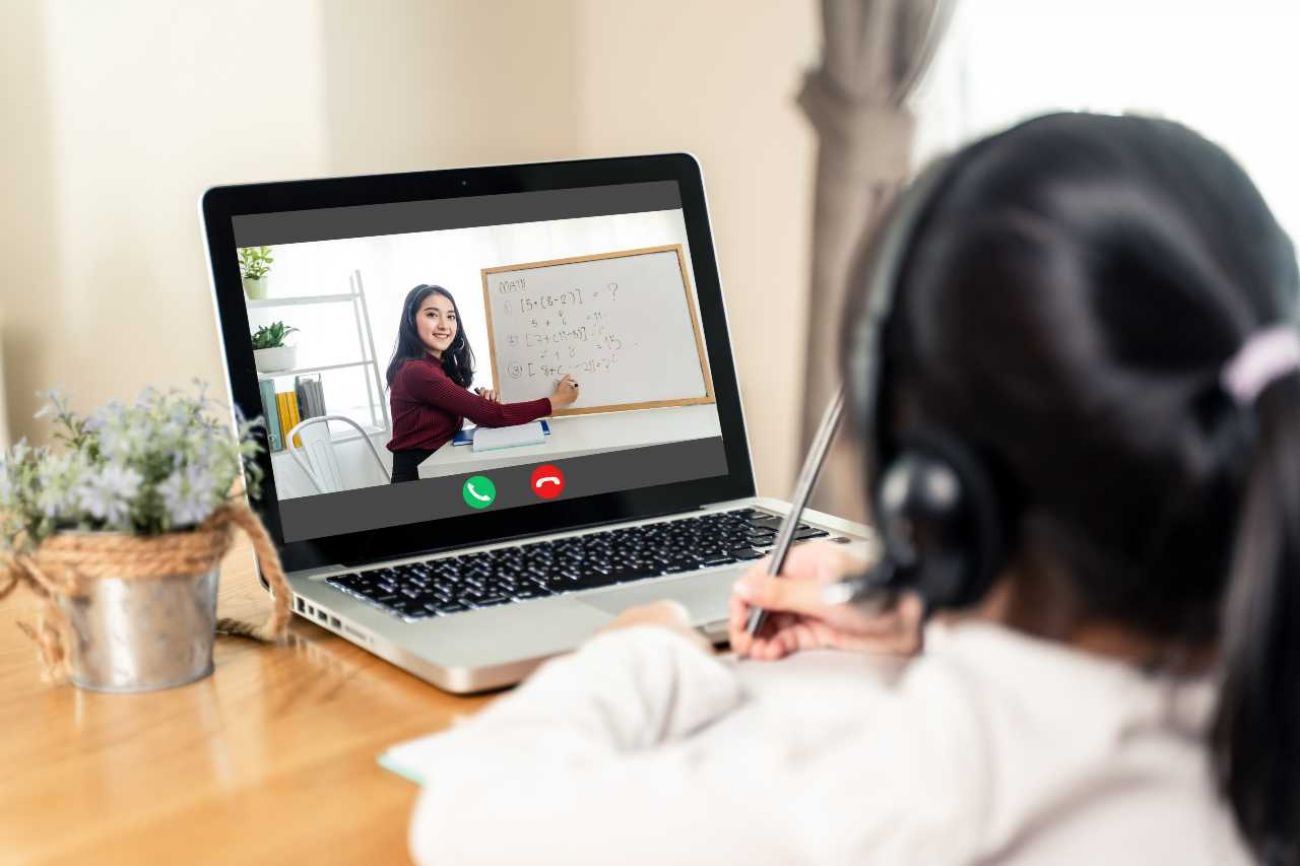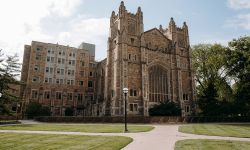Some Michigan schools will stay remote until January amid COVID

Many Michigan students won’t be returning to classrooms until at least January as COVID roars through the state.
A Michigan Department of Health and Human Services order mandating a three-week closure of the state’s high schools ends Dec. 8, but many schools in some of Michigan’s most populous counties aren’t waiting to see if that order is extended – choosing to close buildings until after the winter break.
Some are closing all K-12 classrooms rather than just high schools, and some school districts don’t plan to reopen their buildings until Jan. 22 at the earliest, arguing that repeated switching between in-class and remote instruction models is harmful for kids, families and teachers.
“I didn’t want to yo-yo in and out of school,” said Kevin Polston, superintendent of Godfrey-Lee Public Schools near Grand Rapids, where high-schoolers will learn remotely until Jan. 22 but younger students will have an in-person option. “I also believe a vaccine for teachers will be in reach by that time.”
Related stories:
- ‘It’s been hell.’ 1 house, 5 kids, and a pandemic struggle to learn at home
- Thousands fled Michigan schools in fall. Will COVID home-schoolers come back?
- The latest: Michigan coronavirus unemployment, map, curve, updated COVID-19 news
- Dashboard: Michigan coronavirus testing numbers, trends, COVID-19 data
Barring an additional state mandate, the state’s more than 800 traditional school districts and charter schools will have to make their own decisions about when high school students will return to classrooms.
School leaders who spoke to Bridge expressed a reluctance to bring back students next week, fresh off three weeks of remote learning, for two weeks in classrooms before a two-week winter break.
“At this point, is there a good education or health reason to try to get kids back for a [short time] before they go on vacation again?” said Robert McCann, executive director of the K-12 Alliance of Michigan, a statewide school advocacy organization. “From a continuity of learning and a parent planning standpoint, I’m not sure it makes sense.”
The state’s three-week high school closure was announced on a Sunday and took effect three days later.
The logic of closing high school buildings and leaving K-8 buildings open had to do with the pattern health officials have seen in outbreaks – that much of the spread is among older students who are involved in activities in which they are gathered in groups, such as sports.
“We are in the worst moment of this pandemic to date,” Gov. Gretchen Whitmer said in a Sunday evening news conference that announced new restrictions for schools, colleges, bars and restaurants.
“The situation has never been more dire. We are at the precipice, and we need to take some action, because as the weather gets colder, and people spend more time indoors, this virus will spread.
“More people will get sick,” Whitmer said, “and there will be more fatalities.”
MDHHS spokesperson Lynn Sutfin told Bridge Tuesday “no decisions have been made about what comes next (after the order expires Dec. 8), and we want to have as much data as possible before making a decision.
“At the end of the three week pause, we will evaluate the impact the actions we have taken may have had and determine next steps,” Sutfin said in an email.
“These factors can combine in different ways, but measures we will review include the percent of emergency department visits for coronavirus like illness; if [the percent of COVID tests that comes back positive] is plateauing or declining; if reported cases each day are plateauing or declining; and if the number of COVID-19 inpatient (hospital) admissions each day is declining.”
McCann said it’s better for schools if the state makes a decision sooner rather than later.
“The last thing we want is for them to wait until the last minute” to tell schools if they are being ordered to close for a longer period, McCann said.
Detroit Public Schools Community District, the state’s largest school district with 51,000 students, currently plans to be fully remote until Jan. 11.
Grand Rapids Public Schools isn’t returning until at least Jan. 4. The Kent County Health Department has recommended that high schools not reopen until at least Jan. 15. Interim Kent Intermediate School District Superintendent Ron Koehler said he expects most of the county’s districts to follow that recommendation, and “a lot of K-8 will follow suit.”
The Wayne County Health Department recommends that all classrooms be closed until at least Jan. 15, something Livonia Public Schools has already announced it will do.
Most of the districts in Ingham County are fully remote until January, as are many districts in Oakland County. Port Huron Area School District is fully remote through Jan. 11, and other districts in St. Clair County are likely to follow suit for at least high schools, said Kevin Miller, superintendent of St. Clair Regional Educational Service Agency.
Education researcher Katharine Strunk, director of the Education Policy Innovation Collaborative at Michigan State University, said she’s not surprised so many schools are making the decision to shutter classrooms until after the holidays.
While there’s value in students getting as much face-to-face instruction as possible, “another way to think about it is, is there the staff to do it?” Strunk said.
Some school districts moved to fully remote instruction in mid-November when they couldn’t find enough substitute teachers to staff classrooms because so many teachers were in quarantine.
Strunk said there is research indicating that unexpected switches between learning models (in-person to online learning and back again with little notice, for example) is detrimental to student success.
“Is it worth it to open for two weeks in the middle of uncertainty and concern?” Strunk asked.
That’s the question in hard-hit Dickinson County in the Upper Peninsula, where Norway-Vulcan Area Schools’ Superintendent Lou Steigerwald sent a letter to parents Monday warning them that it wasn’t clear whether high schoolers would return to classrooms Dec. 9, the first school day after the state’s current COVID order expires.
“In Dickinson County, you’d be hard-pressed to find someone who doesn’t know someone who’s had COVID,” Steigerwald said. “It’s really swept through our nursing homes. Our obit page last Saturday was four pages long.”
Steigerwald told parents the district will wait to see if the state extends the high school closure order. If it doesn’t, the district will work with the local health department to make the call. If the COVID data is as bad next week as it is now, the district’s high school likely won’t open, Steigerwald said.
State officials “push it down to local folks [to make decisions,] and none of us are doctors,” Steigerwald said. “Parents are letting their kids get together after school. I get it, the kids are going buggy. But it’s not working.”
Michigan Education Watch
Michigan Education Watch is made possible by generous financial support from:
Subscribe to Michigan Education Watch
See what new members are saying about why they donated to Bridge Michigan:
- “In order for this information to be accurate and unbiased it must be underwritten by its readers, not by special interests.” - Larry S.
- “Not many other media sources report on the topics Bridge does.” - Susan B.
- “Your journalism is outstanding and rare these days.” - Mark S.
If you want to ensure the future of nonpartisan, nonprofit Michigan journalism, please become a member today. You, too, will be asked why you donated and maybe we'll feature your quote next time!






